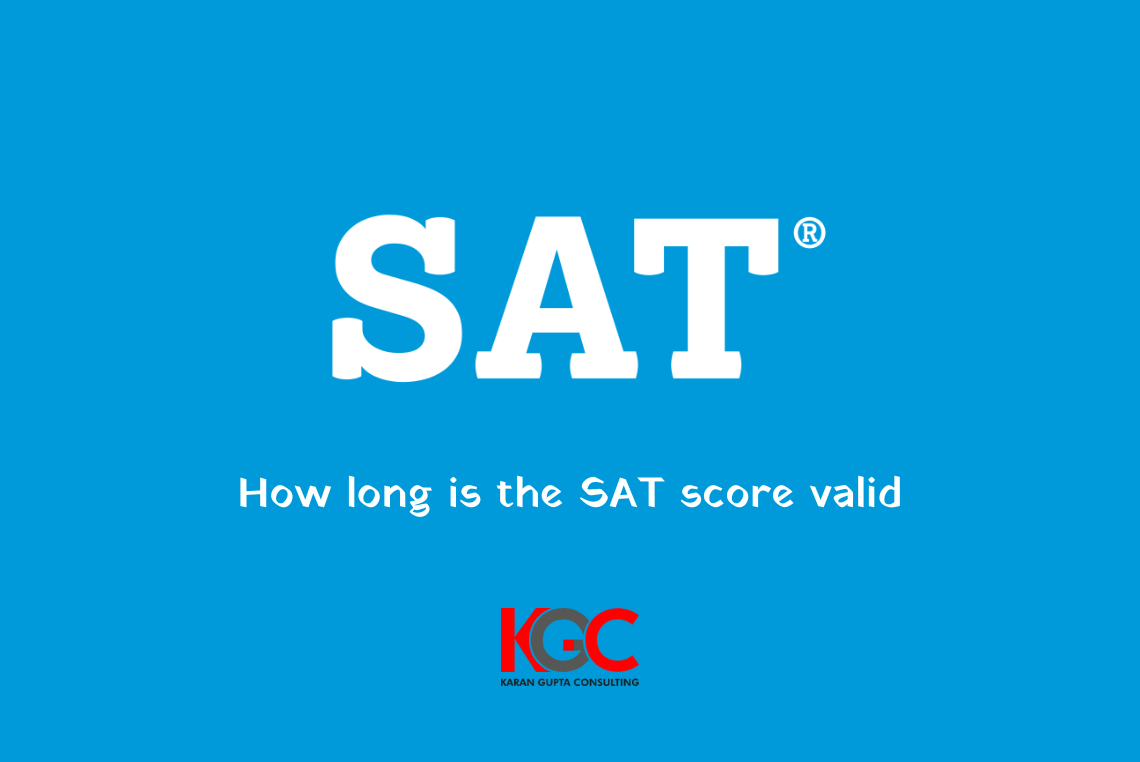- +91 22 23526372
- kgc@karangupta.com

SAT scores typically don’t expire, but some colleges have a cutoff and may not accept scores older than five years. The College Board, which administers the SAT, will send old score reports that are over five years old with a note stating: “These scores might be less reliable indicators of college performance compared to more recent ones.”
Highly selective universities often prefer test scores from the past one to two years, while less competitive institutions might accept scores that are up to five years old. It’s a good idea to check the specific policies on the websites of the universities you’re interested in, as they can vary. If your SAT scores are approaching the end of their validity, you might want to think about retaking the test to provide more current results.
The College Board keeps students' test scores on file for one year from the test date, but you can still access and retrieve them afterwards. To do so, log in to the College Board portal and follow the instructions to order older score reports. When adding your scores to be sent to specific universities, make sure to include them in the recipient list. For a more immediate need, you can also reach out to the College Board by phone for your archived scores. If you require your SAT scores urgently, you have the option to request rush reporting, which delivers your scores within one to four business days.
With seven SAT dates available throughout the year, students have the opportunity to take the test multiple times. Most universities will consider only the highest scores and may use a method called “super scoring.” Superscoring combines the highest scores from the Math section and the highest scores from the Reading and Writing section, even if they are from different test dates. It's important to check each university’s policy on super scoring and whether they require you to submit all your test scores.
Typically, students see improved scores when they retake the SAT. Many choose to take the test twice—once in their junior year and once in their senior year—to allow time for addressing weaknesses and enhancing their knowledge.
The SAT has transitioned from its traditional paper-based format to a new digital version, aiming to enhance accessibility and equity for all students. This updated format introduces several significant changes:
Adaptive Digital Format: The test is now adaptive, meaning the difficulty of questions will adjust based on the student's performance on the initial set of questions.
Reduced Duration: The test has been shortened from 3 hours to just 2 hours and 14 minutes.
Concise Questions: Long reading passages have been replaced with shorter texts, each accompanied by a single question.
Unique Question Sets: Each student receives a distinct set of questions, which helps to minimise cheating and ensures a fair testing environment.
Calculator Access: Students are allowed to use a calculator throughout the Math section, whether it's their graphing calculator or one provided within the test.
Faster Score Reporting: Test scores will now be available in a matter of days, rather than weeks.
|
QS Rankings 2025 |
University |
Testing Policy |
|
1 |
MIT |
ACT or SAT Required |
|
4 |
Harvard University |
SAT or ACT scores are typically required. However, in exceptional situations where these tests are unavailable, one of the following alternatives may fulfil the requirement: AP Exam results IB Diploma scores GCSE or A-Level qualifications National Leaving Examination scores |
|
6 |
Stanford University |
SAT or ACT Required for Admission Starting Fall 2026 and Beyond |
|
10 |
California Institute of Technology |
SAT or ACT Required for Admission Starting Fall 2026 and Beyond |
|
11 |
University of Pennsylvania |
Optional Testing |
|
12 |
University of California, Berkeley |
Without the need for testing |
|
16 |
Cornell University |
For Fall 2025 applicants, the following colleges and schools recommend submitting standardised test scores:
Beginning with Fall 2026 admissions, submission of SAT or ACT scores will be mandatory. |
|
21 |
University of Chicago |
Optional Testing No Negative Impact Testing Policy Submitted SAT scores will only be considered if they enhance the applicant's likelihood of admission, ensuring no disadvantage in the evaluation process. |
|
22 |
Princeton University |
Optional Testing |
|
23 |
Yale University |
Test-Optional Flexibility: Students are required to submit standardised test results but have the flexibility to choose from the following four options:
|
Keep in mind that standardised test policies are frequently updated. It's important to visit the official websites for the latest information.
